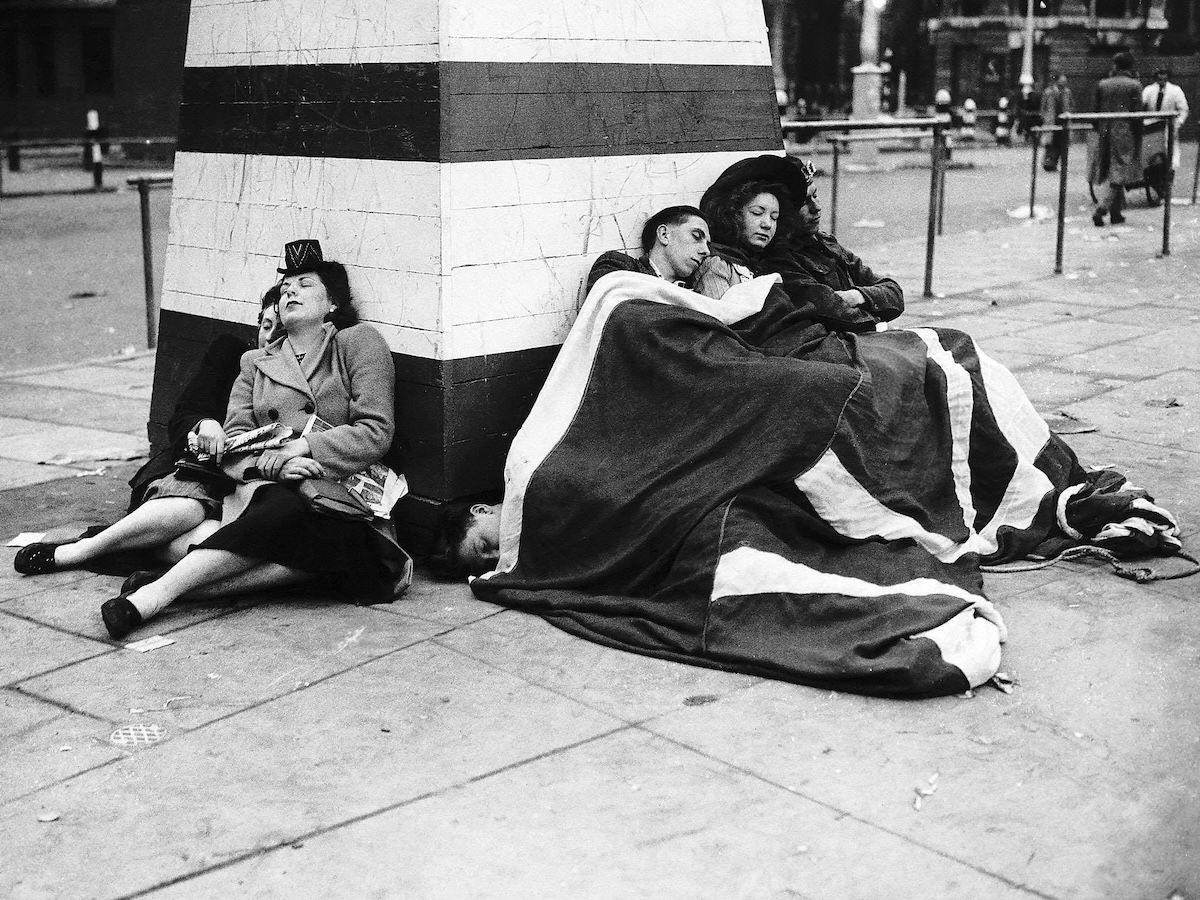VE Day: The Quiet After the Peace
When VE Day finally came in May 1945 it was met with relief, exhaustion, and cynicism. Was the Second World War really over?

Across Britain, people could sense the end of the war approaching by the spring of 1945. After five-and-a-half years of death and destruction, VE Day would provide a moment of rejoicing and relief, but it would also be tinged with exhaustion and grief. Yes, there would be no more sheltering from bombers and ‘V’ weapons, or anxiously waiting for telegrams and letters from soldiers serving on distant battlefields, or bumbling about after dark in blackout cities. But the damage left by the Luftwaffe continued to scar countless streets, while more than 400,000 soldiers would never return. It would also take years to dismantle some of the most intrusive elements of state-enforced regimentation, such as the rationing of food and clothes.







